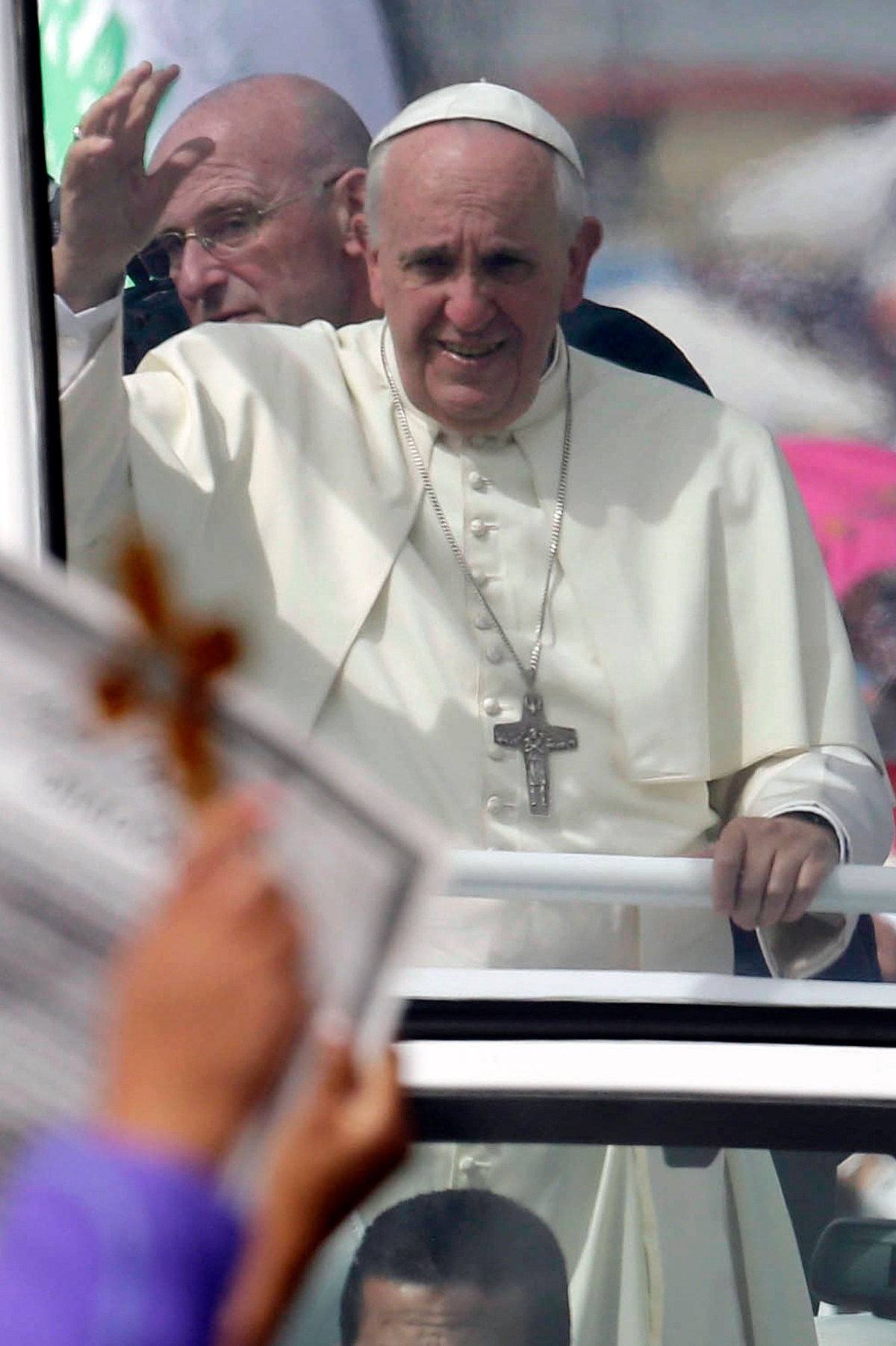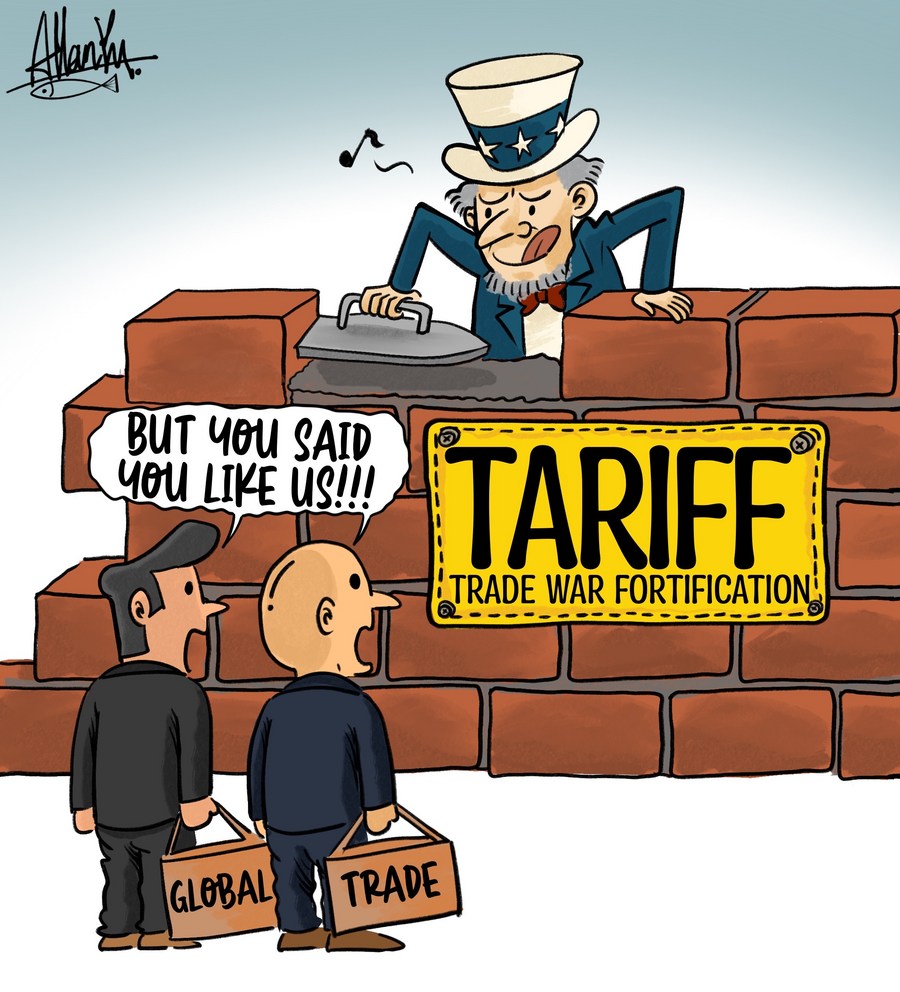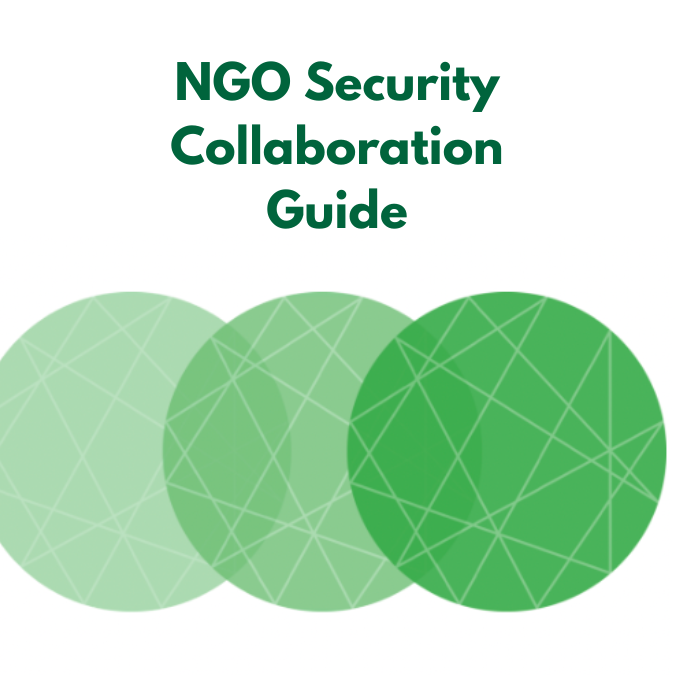Pope Francis: A Legacy Of Compassion

Table of Contents
Pope Francis, since his election in 2013, has redefined the image of the papacy through his unwavering emphasis on compassion. His actions and pronouncements reflect a profound commitment to social justice, environmental stewardship, and interfaith dialogue, leaving an indelible mark on the Catholic Church and the world. This article will delve into the key aspects of Pope Francis' legacy of compassion, examining how his compassionate leadership has shaped global discourse and inspired action.
A Shepherd for the Poor and Marginalized
Pope Francis has consistently prioritized the needs of the poor and marginalized, making it a cornerstone of his papacy. His compassionate approach is evident in various initiatives and pronouncements, solidifying his legacy as a shepherd for those often overlooked.
Emphasis on Social Justice
Pope Francis' commitment to social justice is deeply rooted in his theological understanding and personal experiences. He regularly speaks out against the injustices faced by vulnerable populations worldwide.
- Focus on the plight of the poor and refugees: He has consistently called for greater compassion and action to address the global refugee crisis, highlighting the human cost of conflict and displacement. His visits to refugee camps and his impassioned pleas for their humane treatment underscore this commitment.
- Initiatives supporting the homeless and underserved communities: The Vatican and Catholic organizations worldwide have significantly increased their support for homeless shelters, soup kitchens, and other initiatives aimed at assisting the impoverished. This reflects a direct translation of the Pope's words into concrete action.
- Critiques of economic inequality and calls for wealth redistribution: Pope Francis has been a vocal critic of unchecked capitalism and the widening gap between the rich and the poor. He advocates for policies that promote fairer distribution of wealth and resources, ensuring a more just and equitable society.
- Examples: Laudato Si' and Evangelii Gaudium: These encyclicals (papal letters) are key documents outlining his vision for a more just and compassionate world. Laudato Si' focuses on environmental stewardship, while Evangelii Gaudium emphasizes the importance of evangelization through acts of charity and social justice.
Dialogue with the Persecuted
Pope Francis' compassionate leadership extends to advocating for those facing persecution and violence. His unwavering support for religious minorities and victims of conflict is a defining feature of his papacy.
- Advocacy for religious minorities and victims of persecution: He consistently condemns acts of violence against religious groups, advocating for their protection and the promotion of religious freedom worldwide.
- Outreach to victims of conflict and violence: He has visited war-torn regions, offering comfort and support to those affected by conflict. His presence serves as a powerful symbol of hope and solidarity.
- Promotion of interfaith understanding and cooperation: Pope Francis actively seeks dialogue and cooperation with leaders of other faiths, promoting mutual understanding and respect. He believes that interfaith cooperation is essential to building a more peaceful world.
- Examples: His visits to the Central African Republic, Iraq, and other conflict zones; his meetings with various religious leaders, including the Dalai Lama and the Grand Imam of Al-Azhar.
Environmental Stewardship and Laudato Si'
Pope Francis' encyclical Laudato Si' has had a significant impact on the Catholic Church's approach to environmental issues and is a testament to his compassionate concern for the planet.
The Encyclical's Impact
Laudato Si', published in 2015, is a landmark document that integrates social and environmental justice. It calls for urgent action to address climate change and protect the environment, framing it as a moral imperative.
- Laudato Si' and its call for environmental protection: The encyclical urges individuals, communities, and governments to adopt sustainable practices and protect the planet's resources for future generations.
- Emphasis on the interconnectedness of social and environmental justice: The encyclical highlights the link between environmental degradation and social inequality, arguing that environmental issues disproportionately affect the poor and marginalized.
- Impact on the Church's stance on climate change and sustainability: Laudato Si' has significantly influenced the Catholic Church's stance on climate change, prompting numerous initiatives promoting renewable energy, sustainable agriculture, and responsible consumption.
- Examples: The Vatican's commitment to renewable energy sources; various diocesan initiatives focused on ecological conversion and environmental stewardship.
Promoting Sustainable Practices
Beyond Laudato Si', Pope Francis consistently promotes sustainable practices in his teachings and actions.
- Calls for responsible consumption and production: He encourages conscious consumer choices and advocates for sustainable production methods that minimize environmental impact.
- Advocacy for protecting biodiversity and natural resources: He emphasizes the importance of preserving biodiversity and protecting natural resources for future generations.
- Emphasis on the ethical dimensions of environmental stewardship: He frames environmental protection as a moral imperative, emphasizing our responsibility to care for creation.
A Pope of Dialogue and Inclusivity
Pope Francis' commitment to dialogue and inclusivity is another facet of his compassionate leadership.
Interfaith Relations
Pope Francis' papacy has been marked by a significant emphasis on interfaith dialogue and cooperation.
- Efforts to foster dialogue and cooperation with other religions: He has actively engaged in dialogue with leaders from various faiths, fostering mutual understanding and respect.
- Promoting interfaith understanding and respect: He consistently stresses the importance of religious tolerance and cooperation in building a more peaceful and harmonious world.
- Examples: His meetings with the Grand Imam of Al-Azhar, the Dalai Lama, and other religious leaders.
Welcoming Diverse Voices
Within the Catholic Church, Pope Francis has actively promoted inclusivity and open dialogue.
- Openness to different perspectives within the Catholic Church: He encourages open discussions on various issues and welcomes diverse perspectives within the Church.
- Emphasis on synodality and participatory decision-making: He promotes synodality—a process of shared decision-making within the Church—to ensure that diverse voices are heard and considered.
- Addressing issues of LGBTQ+ inclusion and acceptance: While not without controversy, his efforts to create a more welcoming and inclusive environment for LGBTQ+ individuals within the Church reflect his commitment to compassion.
Conclusion
Pope Francis' papacy is undeniably marked by a profound commitment to compassion, extending from his concern for the poor and marginalized to his impassioned advocacy for environmental protection and interfaith dialogue. His legacy transcends the Catholic Church, influencing global conversations on social justice, environmental sustainability, and the importance of human connection. By embracing his message of compassion, we can all strive to build a more just and equitable world. Learn more about Pope Francis' inspiring work and continue to explore his legacy of compassion.

Featured Posts
-
 Overcoming The Hurdles Robots And Nike Sneaker Production
Apr 22, 2025
Overcoming The Hurdles Robots And Nike Sneaker Production
Apr 22, 2025 -
 Hollywood Strike Actors Join Writers Bringing Production To A Halt
Apr 22, 2025
Hollywood Strike Actors Join Writers Bringing Production To A Halt
Apr 22, 2025 -
 Trumps Trade Wars A Reassessment Of Americas Global Financial Position
Apr 22, 2025
Trumps Trade Wars A Reassessment Of Americas Global Financial Position
Apr 22, 2025 -
 China And Indonesia Expanding Security Collaboration
Apr 22, 2025
China And Indonesia Expanding Security Collaboration
Apr 22, 2025 -
 Assessing The Impact Of Tariffs On Chinas Exports
Apr 22, 2025
Assessing The Impact Of Tariffs On Chinas Exports
Apr 22, 2025
